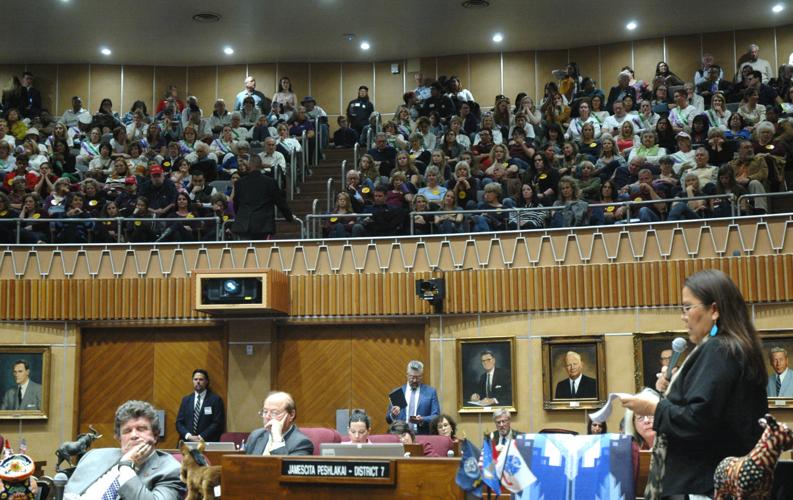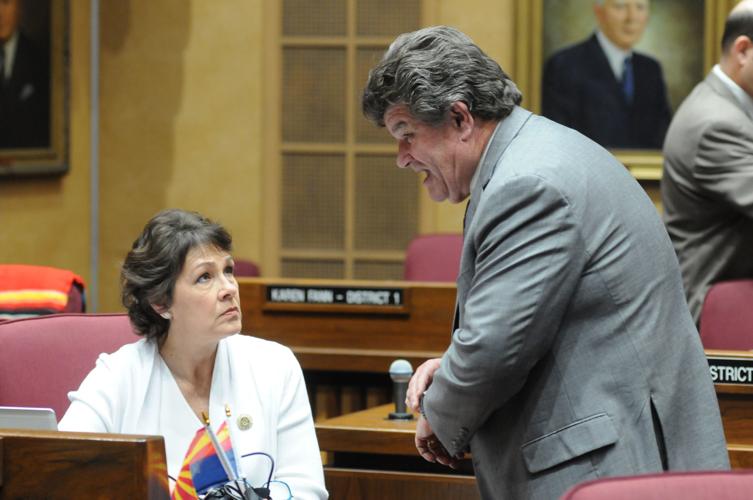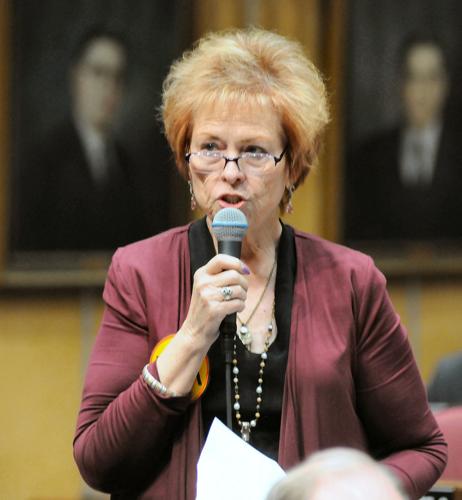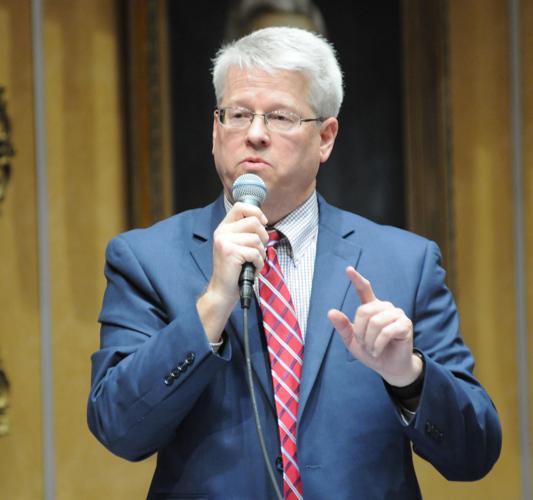PHOENIX т A bid to force a vote on having УлшжжБВЅ ratify the Equal Rights Amendment faltered Wednesday when every Republican senator present refused to allow it.
The 16-13 vote against suspending the rules to permit a vote on ratifying the ERA came after even three Republicans who are co-sponsors refused to side with the Democrats who sought an immediate vote; a fourth was absent. Their support would have provided the margin to require a vote.
One of them, Sen. Michelle Ugenti-Rita, R-Scottsdale, said afterward that she still supports the ERA.
But she said the motion by Senate Minority Leader David Bradley, D-УлшжжБВЅ, was to suspend the rules to force a vote. And Ugenti-Rita said she has to support her party when there is a vote on changing procedures.
For other Republicans, their votes to deny even debating the issue was strictly on philosophical and political lines.
People are also reading…
Sen. Sylvia Allen, R-Snowflake, worried about the effects of a federal constitutional amendment that would say тequality of rights under the law shall not be denied or abridged by the United States or any state on account of sex.т
ттSexт has a lot of different definitions today than it did in the 1970s,т she said, when the amendment was first proposed. And that, said Allen, would lead to тunintended consequences.т
тIt would be impossible for girlsт sports to keep boys out,т she said. тAlready, transgender men are disrupting womenтs sports.т
Allen also said it would require things like mixing men and women in prison.
Sen. Eddie Farnsworth, R-Gilbert, contended the ERA would provide a constitutional basis to argue not only for abortion but to invalidate laws that prohibit the use of public funds to terminate a pregnancy.
But Sen. Victoria Steele, D-УлшжжБВЅ, said opposition is based on myths.
тThe ERA is not about abortion,т she said. If it was, Steele said, the original measure to try to get УлшжжБВЅ to ratify it in the 1970s would not have been backed by Sandra Day OтConnor, then a Republican state senator, and Claire Dunn, a Democratic nun from УлшжжБВЅ who was in the state House.
Farnsworth responded he has no way of knowing the motives of the pair.
Much of the more than an hour of debate turned on long-repeated claims by both sides.
тA basic principle of the American idea is majority rules,т said Sen. Andrea Dallesandro, D-Green Valley. And more than half of all citizens in УлшжжБВЅ and the United States are women, she said.
тAmerican women remain vastly underrepresented, underpaid and undervalued without the ratification of the ERA,т Dallesandro said.
But Sen. Sonny Borrelli, R-Lake Havasu City, said there already are federal and state laws to prevent employers from discriminating on pay based on gender.
тThe wage gap is driven by choices men and women make,т he said.
тWomen can work fewer hours than men,т Borrelli said. He also said there is тalmost no gapт in wages when comparing single and childless women with what men earn.
That explanation annoyed Steele.
тThe wage gap cannot be explained away by choices,т she said.
And Steele said she was not content to rely on statutes to protect women. тThose rights are based on laws т laws that can and do disappear with every political election,т she said, arguing constitutional amendments are needed to cement protections.
Sen. Sine Kerr, R-Buckeye, said problems with the amendment go beyond the 23 words guaranteeing equality of rights. She pointed out that the proposed amendment also would give Congress the power to enforce it.
тIt is wrong to abdicate our stateтs rights to Congress,т she said.
Then thereтs the legal question.
Congress approved the amendment in 1972, sending it to the states for ratification. Three-fourths of the states т a total of 38 т have to approve.
By the original 1979 deadline, 35 had approved. A congressional extension until June 30, 1982, produced no more.
Nevada and Illinois have since done their own post-deadline ratifications. Proponents claim that would make УлшжжБВЅ the needed 38th state.
But itтs not that simple. Five states have voted to revoke their ratifications.
Senate Majority Leader Rick Gray, R-Sun City, said the long-passed deadline makes the whole discussion moot, citing a Supreme Court ruling that declared the issue dead.
тThe idea that a couple of states can tack on to votes taken over 40 years ago is a fraud and a cheat on our constitutional system,т said Allen.
None of that dissuaded Sen. Martin Quezada, D-Glendale. He said there are still legal questions about all that, noting that Congress could act now to extend the deadline.
Still, he said, it doesnтt matter to him even if an УлшжжБВЅ vote proves to be legally ineffective.
тThere is no deadline on equality,т Quezada said. тWe should still pass this because we care about equality.т
All through the debate, male lawmakers on both sides mentioned their wives, mothers, sisters and daughters, each claiming that they were acting in their best interests.
тI believe that they should live in a world that recognizes them for who they are and accords them the same respect that is accorded to me,т said Sen. Lupe Contreras, D-Avondale.
тWomen are sacred,т Farnsworth said, speaking of his wife and seven daughters. тI oppose the ERA because I believe that is the way to protect the women in my life.т

































